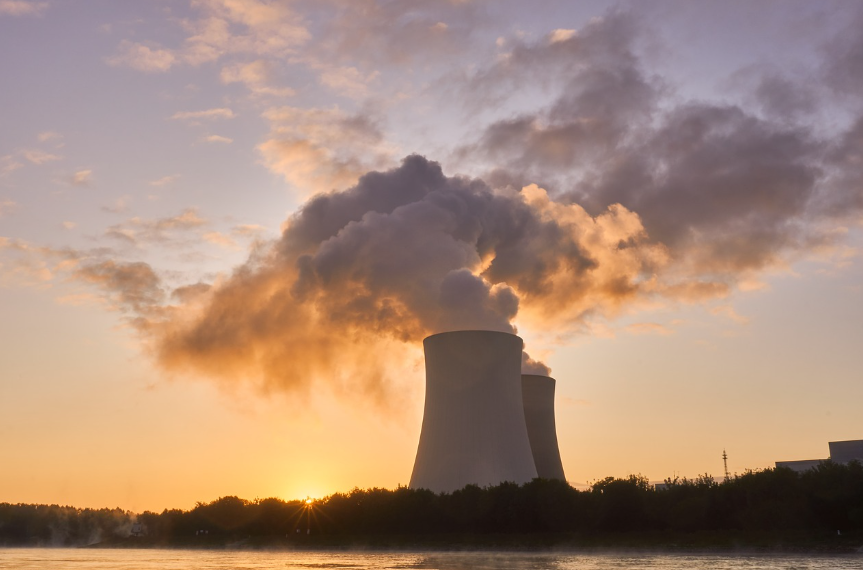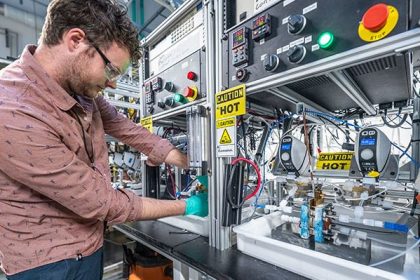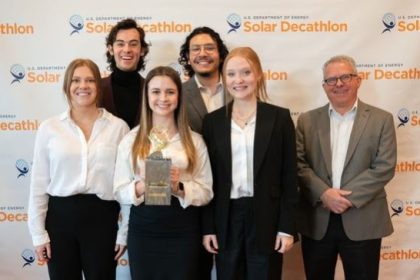Government Officials Advocate for Nuclear Energy During Congressional Hearing

WASHINGTON — Government energy officials told a congressional panel Thursday that emerging technologies could make nuclear power a safe and cost-efficient way of helping the United States achieve energy independence.
“We have an opportunity to reestablish U.S. global nuclear leadership and meet our net zero goals by 2050 through deployment of new nuclear technologies,” Kathryn Huff, a U.S. Energy Department assistant secretary, told the House Committee on Oversight and Accountability.
She was referring to President Joe Biden’s goal of achieving a carbon pollution-free power sector by 2035 and net zero emissions for the U.S. economy no later than 2050.
Biden discussed his environmental goals before signing two pieces of legislation in the past two years that advance nuclear energy development.
One of them is the Bipartisan Infrastructure Law, which is investing $108 billion in public transportation projects. It includes $6 billion for the Civil Nuclear Credit program.
The program authorizes owners or operators of commercial nuclear reactors to bid on credits to support their continued operations.
The other is the Inflation Reduction Act, which offers nuclear reactor operators tax credits.
Huff said the Biden administration’s nuclear energy policies would “create and maintain good jobs while allowing for an equitable energy transition and simultaneously bolstering our economic interest abroad.”
There are 93 nuclear reactors in the United States, making it the world’s largest fleet of electrical energy plants powered by atomic fission. They produce about 20% of the electricity used in the United States.
Congress is trying to decide whether to give the industry additional support and incentives.
A central part of the emerging technologies is development of “small modular reactors” that the Energy Department certified for the first time in 2022.
They are nuclear fission reactors that can be factory built and assembled in modules that are about one-tenth to one-quarter the size of traditional nuclear energy plants. Their compact, simplified designs come with advanced safety features that are supposed to rule out possibilities of meltdowns like at Chernobyl in Ukraine in 1986 and Fukushima, Japan in 2011.
“Technologies that are currently under development, including the small modular reactor, when deployed, could both provide the capacity and energy that nuclear power plants are known for, and help operators to meet flexibility requirements of the future grid,” said David Ortiz, director of the Federal Energy Regulatory Commission’s Office of Electric Reliability.
The other promising technology discussed at the congressional hearing is high-assay low-enriched uranium. It uses uranium enriched between 5% and 20% of the U-235 isotope, which means it offers longer cycle times in reactors, less waste and less downtime for refueling than conventional light water reactor fuel.
Optimism of the government officials was tempered by lawmakers discussing how nuclear waste has threatened the health of residents in their home districts.
Rep. Melanie Stansbury, D-N.M., called the byproducts of early nuclear development “the dark side of that nuclear legacy.”
Private companies mined uranium in her home state of New Mexico from the 1940s into the 1990s before abandoning the mines, she said.
“They’re still not remediated to this day and there are thousands of people who are living around those mines,” Stansbury said. They suffered cancer and birth defects at alarming rates, she added.
Rep. Cori Bush, D-Mo., talked about nuclear waste stored near St. Louis that leached into Coldwater Creek, where children would sometimes swim. Cancer clusters were reported by residents near the creek, she said.
Rep. Pat Fallon, R-Texas, said the newest nuclear generators avoid hazards of previous technologies while offering “an extremely clean form of energy production, producing zero greenhouse gas emissions.”
He also said the new technologies could help wean the United States off the need to import uranium, such as from Russia and China. Imports from Russia account for a quarter of the uranium used at U.S. power plants.
“This is clearly a national security issue for the United States,” Fallon said.
You can reach us at [email protected] and follow us on Facebook and Twitter

























